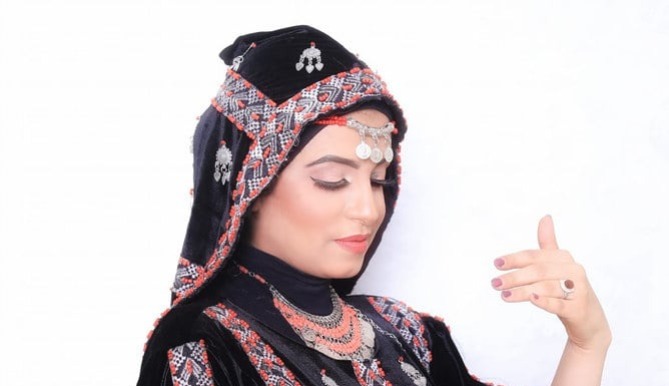In an act of defiance against the Houthi dress regulations and escalating restrictions imposed on women in regions under Houthi control, Yemeni women are taking to social media to reclaim their cultural identity. Using the hashtag #Yemeni_identity, these women, both inside and outside the country, are posting pictures of themselves dressed in colorful traditional attire, a powerful assertion of their heritage and identity.The Houthi authorities recently ordered women to wear black, loose-fitting abayas, marking yet another restriction on women’s freedoms in the areas they control.
The online campaign, sparked by this new dress code, has become a symbol of resistance against these oppressive measures.Yemeni women are using social media platforms like Facebook and Twitter to share their images, a familiar tactic employed by activists to voice their protests. Their photos are a celebration of their cultural heritage, showcasing the vibrant and colorful clothing that has been a part of Yemeni tradition for generations.Mozen Senan, a Yemeni writer, captured the essence of this movement when she said, “Our grandmothers used to wear colorful clothing, and our heritage is full of colors and joy.” She posed for a picture with a friend, both adorned in colorful abayas and headscarves, to emphasize that Yemen’s cultural identity is rooted in these traditions. She added, “Ansar Allah dictates our attire and wants to wrap us in black.
Even if we no longer dress like our grandmothers, this is who we are today, and these are our colors,” using the official name of the Houthi group.This act of resistance is not solely about clothing but about reclaiming agency and asserting their identity in the face of oppressive restrictions. It represents a powerful statement of resilience, challenging the imposition of black abayas as the standard attire.The Houthi-enforced dress code is just one facet of the growing crackdown on women’s rights in regions under their control. Women are not only subjected to strict dress regulations but are also prohibited from moving between towns without male guardians. The group has gained notoriety for abducting and charging artists with supposed moral crimes, further stifling freedom of expression and creativity.Human rights activist Ebtehal Al-Komani voiced the sentiment shared by many Yemeni women, emphasizing that black clothing has never been a traditional Yemeni attire. She denounced this peculiar custom that has been imposed on Yemeni society, stating, “It neither belongs to us nor does it define us.”
In a show of solidarity, she and other female activists posted photos of themselves in traditional garb on Facebook, highlighting the stark contrast between their vibrant cultural heritage and the imposed black attire.Renowned Yemeni singer Fatima Muthanna joined the movement, sharing photos of herself in traditional clothing on Facebook. She declared, “This is our vibrantly hued identity,” garnering widespread support from her fans.The Houthi crackdown on freedom of expression has extended beyond dress codes to encompass online personalities who dare to criticize the militia’s governance. Since December, the Houthis have abducted and imprisoned five prominent online personalities, punishing them for speaking out against economic hardships and government corruption.The plight of Yemeni model and actress Entesar Al-Hammadi remains a stark reminder of the Houthi’s brutal tactics. She was kidnapped in a Sanaa street on charges of violating the Islamic dress code. Despite both local and international appeals for her release, reports suggest that she continues to be held in solitary confinement and subjected to torture.
As the Houthis tighten their grip on regions under their control, thousands of Yemenis have been forced to leave their homes, seeking refuge in areas governed by the legitimate government. The situation paints a dire picture of the ongoing struggle for freedom, human rights, and gender equality in Yemen.In the face of adversity, Yemeni women are using their voices and their vibrant cultural heritage to resist oppression and assert their identity. Their defiance on social media is not only a rejection of imposed dress codes but also a testament to their resilience and determination to preserve their rich cultural legacy in the midst of conflict and adversity.












